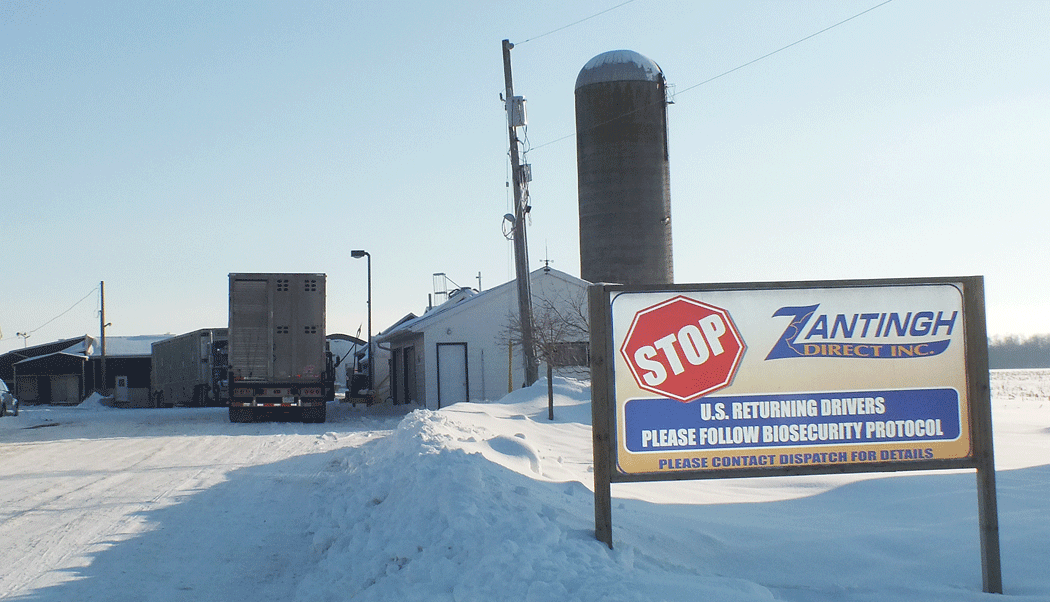Two drowned in the waters off Ipperwash on the Canada Day weekend

Producers take precautions as piglet killing virus found in Lambton
February 6, 2014
Producers and assembly yards like Zantingh Direct are taking extra precaution as the province deals with the deadly Porcine Epidemic Diarrhoea.
There is concern and anxiety in Lambton County as pork producers watch a deadly piglet virus make its way into Ontario.
Porcine Epidemic Diarrhoea, which doesn’t affect food safety and in not spread to other animals or humans, has been found in Europe for years. It kills the youngest of piglets within three days. In May 2012, the first case was found in the US.
On Jan. 22, a pork producer in Middlesex became the first to find PED in his operation as his youngest piglets began to die. Since then four other farms have had confirmed PED cases.
And the virus has been detected in Lambton County at Zantingh Direct in Reeces Corners. Business Manager Brad Zantingh confirms as the Ministry of Agriculture began to trace the movements of the Middlesex producers’ animals, they tested for PED in Zantingh’s assembly yard and found the virus.
Zantingh Direct is a clearinghouse for pork producers. They bring their animals to Reeces Corners and Zantingh sends them to US meat packers. So, Zantingh says, it was inevitable the virus would turn up in the operation.
Since Zantingh doesn’t deal with young piglets there is no animal loss. But there is still great concern about the spread of the virus.
Zantingh says they have been working on bio-security measures for months to try to make sure that when the virus arrived in Ontario, they would do as much as possible to stop its spread.
Zantingh says they’ve constructed transfer stations at the loading chutes, segregated animals from Canada and the US, scrape out and clean all trailers entering the yard and disinfecting the trailers all to minimize the risk of PED spreading.
Zantingh is not alone in its drive to increase bio security. The province recently announced $2 million in funding to make sure some crucial areas, like assembly yards, have the best bio security possible, according to Bill Wymenga – the director for Ontario Pork in Lambton. And he says considering how deadly and easily PED is transferred, the money is welcome.
“This particular virus is difficult to kill especially in winter…it can survive indefinitely,” Wymenga told The Independent. “It can be hidden in snow and ice and you can track it in…and it is harder to clean vehicles when it is cold.”
That’s a great concern in Lambton County, where over 200 farmers produce about 15 percent of the province’s pork. Wymenga says the virus could take a big financial toll.
“It can amount to $150 per sow…if you have a small operation of 100 sows times $150, that’s what you can be looking at.”
But the emotional toll could be just as high. “It is difficult on the producer when you’re trying to take care of your animals…and you see all your young pigs die its difficult psychologically,” says Wymenga. “There is a great deal of concern and anxiety about it.”

Two drowned in the waters off Ipperwash on the Canada Day weekend
July 2, 2025
Read More

Petrolia firefighter taken to hospital with signs of heat exhaustion in Canada Day blaze
July 2, 2025
Read More

Five fire departments battle Petrolia Line blaze
July 2, 2025
Read More

Celebrating Canada in Lambton County
July 2, 2025
Read More
